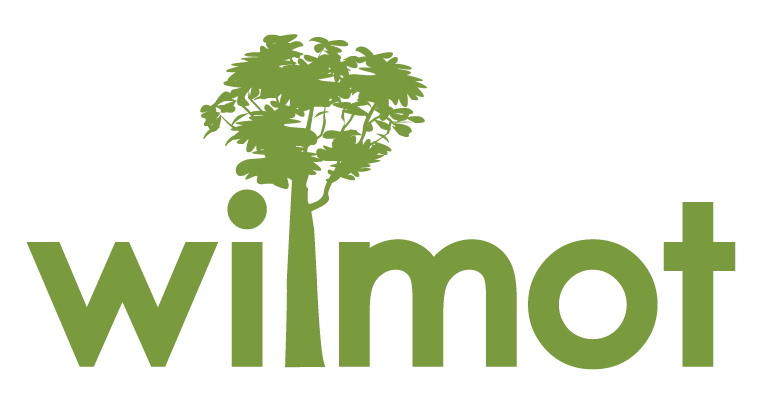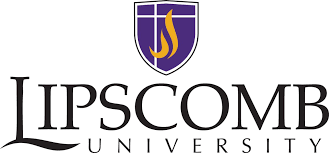Area Partners

Since 1999, the Harpeth Conservancy's mission is to restore and protect clean water and healthy ecosystems for rivers in Tennessee. We employ scientific expertise and collaborative relationships to develop, promote and support broad community stewardship and action.
The Harpeth Conservancy, formerly known as the Harpeth River Watershed Association (HRWA), in middle Tennessee, is a science-based conservation organization dedicated to clean water and healthy ecosystems for rivers in Tennessee.
History
In 1999, the Harpeth River Watershed Association was founded. For more than 18 years, the Harpeth Conservancy has worked to monitor, restore and protect the State Scenic Harpeth River and its tributaries. In June 2017, Harpeth River Watershed Association changed its name to the Harpeth Conservancy. This name change, which is effective immediately, is part of the larger rebranding of the organization which involved the Board, Advisory Board, staff and other key stakeholders. This rebranding included articulation of a new vision, mission statement, and graphic identity.
Supported by a broad network of volunteers, donors, and professional staff, Harpeth Conservancy has expertise in a range of disciplines including water quality science, environmental and conservation law and policy, sustainable land use planning, agricultural best management practices, volunteer and community engagement, and others. Our organization engages in land development decisions, promotes smart growth and agricultural management practices, designs stream restoration plans, assesses sewer and drinking water challenges, conducts river studies, ensures pollution threats are removed, promotes recreation and public education, and serves as a catalyst for effective statewide conservation policies.
Harpeth Conservancy uses its expertise, applied science, and relationships with landowners, businesses, residents and policy decision-makers to develop solutions inclusive of the people who live and work here. By seeking water quality solutions developed with diverse stakeholders, Harpeth Conservancy builds broad stewardship and shared responsibility for streams and rivers in our communities that are vital for the state’s economic well-being and quality of life. With a community effort, we can restore and maintain a healthy and biologically important river in the heart of one of the fastest growing regions of the U.S.
Governance
Harpeth Conservancy is a Tennessee non-profit corporation and a 501(c)(3) organization that strives to represent and help its members champion their interests in clean water and healthy ecosystems for rivers in Tennessee. To do that, we aim to be transparent in what we do and how we do it, including how our organization is governed.
The Department is continually preparing for and responding to a variety of complex issues and challenges when it comes to safeguarding human health, protecting the environment, conserving natural resources and managing an award-winning state park system for Tennessee. Our office assists in this endeavor by examining legacy, current and emerging issues that cut across environmental media, the Department's divisions and programs, geographic locations, and political jurisdictions. Through independent and comprehensive research and analysis, our office provides option alternatives and policy recommendations for the Department.
FROM THE VERY BEGINNING, WILMOT INC. HAS BEEN AT THE CUTTING EDGE OF SUSTAINABILITY. FOR OVER 25 YEARS, OUR CONSULTING SERVICES HAVE PROVIDED OUR CLIENTS WITH INNOVATIVE SOLUTIONS AND LASTING RESULTS.
Tiffany Wilmot brought her experience in recycling and waste reduction to Nashville and founded Wilmot Inc. in 1994. Early on, Tiffany promoted cutting-edge recycling through articles in magazines such as Waste Age Magazine and Recycling Today. Following a lead generated from one article, Tiffany found herself at Saturn’s Tennessee plant for an interview with John Munn, who was in charge of recycling and source reduction. At the time, Saturn required waste to be reduced every year, pushing John to find innovative solutions for company recycling efforts.
Tiffany asked John questions about what, where and how various materials were being recycled, which led to an in-depth discussion regarding how Saturn could improve. The meeting eventually led to Wilmot being awarded its first large waste reduction project. The relationship with Saturn blossomed into a number of contracts, totaling 19 recycling projects and $3M in recycled materials.
In 1996, when the Titan’s Stadium was in the planning stage, Julie Mosely was appointed to the Solid Waste Board by Mayor Bredesen and approached Tiffany to ask Wilmot to manage the stadium's construction debris recycling. At the time, construction/demolition recycling was a new practice and a big deal. Julie convinced Mayor Bredesen to hire Wilmot and Bredesen gave the firm three goals: break even on costs, don’t get in the way, and don’t delay the schedule. Wilmot not only broke even, but ended up saving the city $500,000 while managing what at that time was the largest recycling program in the world.
Following this huge success, Wilmot continued to grow its recycling and waste reduction business, taking on contracts with large institutions and corporations such as Fort Campbell, Coors Corporation and Mitsubishi. One of Tiffany's most memorable moments occurred during a facility walk through with Mr. Coors, owner and founder of Coors Corporation. Coors motioned towards a dumpster and said, "So what you're saying is, this is where my lost profits are?” As with Coors, Wilmot designs custom solutions to help businesses and institutions use resources more wisely and work more efficiently.
Institute for Sustainable Practice
A part of the College of Leadership & Public Service, the Institute for Sustainable Practice was a response to the new pollution, rising gas prices, and extreme weather in 2007. Since then, we’ve invited pioneering entrepreneurs, innovative scientists, creative engineers, visionary policy makers, and other sustainability leaders to share their proven insights, best practices, and research. Through their tutelage and our students’ passion in their diverse disciplines, Lipscomb faculty, students and alumni now add regenerative energy to their communities and the world.
The Institute for Sustainable Practice offers an innovative curriculum at the intersections between business and the natural and social sciences. You will benefit from close relationships with our top-tier practitioner faculty and gain practical experiences with cutting edge best practices through dynamic classes and field studies. ISP's convenient schedules combining live lectures and online content are perfect for busy professionals, and you can even earn graduate credit for a variety of green professional accreditations, enhancing your career before you even graduate.
ORNL’s diverse capabilities span a broad range of scientific and engineering disciplines, enabling the Laboratory to explore fundamental science challenges and to carry out the research needed to accelerate the delivery of solutions to the marketplace. ORNL supports DOE’s national missions of:
- Scientific discovery—We assemble teams of experts from diverse backgrounds, equip them with powerful instruments and research facilities, and address compelling national problems;
- Clean energy—We deliver energy technology solutions for energy-efficient buildings, transportation, and manufacturing, and we study biological, environmental, and climate systems in order to develop new biofuels and bioproducts and to explore the impacts of climate change;
- Security—We develop and deploy “first-of-a-kind” science-based security technologies to make the world a safer place.
ORNL supports these missions through leadership in four major areas of science and technology:
- Neutrons—They operate two of the world’s leading neutron sources, which enable scientists and engineers to gain new insights into materials and biological systems;
- Computing—They accelerate scientific discovery through modeling and simulation on powerful supercomputers, advance data-intensive science, and sustain US leadership in high-performance computing;
- Materials—They integrate basic and applied research to develop advanced materials for energy applications;
- Nuclear—They advance the scientific basis for 21st century nuclear fission and fusion technologies and systems, and we produce isotopes for research, industry, and medicine.
The Richland Creek Watershed Alliance is a watershed-based, community-supported stream conservation group, public charity, focused on environmental sustainability of the Richland Creek watershed, and dedicated to providing action and leadership for long-term restoration and preservation of its ecosystem.
U.S. Geological Survey
We provide science about the natural hazards that threaten lives and livelihoods; the water, energy, minerals, and other natural resources we rely on; the health of our ecosystems and environment; and the impacts of climate and land-use change. Our scientists develop new methods and tools to supply timely, relevant, and useful information about the Earth and its processes.
Our Vision: A Tennessee that embraces natural resources as the backbone of our communities, economy and quality of life for all present and future generations.
Tennessee is one of the most biodiverse inland states in the nation. Our natural resources form the backbone of our economy, quality of life and heritage. For almost 50 years, the Council has been working to protect the environment in Tennessee. The Council has been successful in protecting the Great Smoky Mountains, cleaning up the Pigeon River, reducing pollution from coal-fired power plants, and preventing degradation of high quality streams in the globally significant Duck River Watershed. We have twice been awarded the Governor’s Environmental Stewardship Award.
General Services Division of Sustainability
The Division of Sustainability integrates sustainable practices throughout the department’s projects and operations with the goal to reduce energy, waste, carbon and greenhouse gas emissions while also educating Metro employees and the Nashville community about sustainability. Division staff is responsible for leading innovative, green building strategies and practices, which include the use of green materials in facility projects and operations, maintenance of indoor air quality, energy management, and construction project sustainable site development.
The Division is also responsible for Metro-wide energy management efforts including the integration of energy efficiency and renewable energy use. To support energy reduction, the Division of Sustainability supports the implementation of green building energy options (including energy conservation materials and methods) in new construction, rehabilitation, retrofits, and re-commissioning to ensure energy compliance plans review in all projects.
The division’s management operates in the Center of Responsible Energy (The CORE), which monitors building operations systems, solar electricity production, electric charging stations, utility consumption, and any associated major equipment operation and building automation in the Department of General Services’ buildings.
Associate Professor David Padgett
David A. Padgett is an Associate Professor of Geography, and Director of the Geographic Information Sciences (GISc) Laboratory at Tennessee State University (TSU) in Nashville, Tennessee. He has developed a Geography/ Environmental Justice curriculum with a strong emphasis upon service learning. He has previously developed and taught geography and geographic information systems (GIS)-related courses at Austin Peay State University (Tennessee) and Oberlin College (Ohio). He has conducted faculty GIS workshops at the annual HBCU Faculty Development Conference, the National Service Learning Conference and several colleges and universities including Howard University, Virginia State University, and the Charles R. Drew University of Science and Medicine. Since establishing the GISc Lab in the summer of 2000, Padgett has supervised several undergraduate research assistants on a variety of service learning projects the topics of which include: community-based global positioning systems (GPS) mapping to improve public transit accessibility, GIS-supported homeless population mapping, and GIS mapping of Nashville’s Red Cross emergency shelters. The GISc Lab has developed working relationships with a variety of grassroots groups, non-profit organizations, and government agencies. Many of the students Padgett has taught over the past 16 years have graduated and are now gainfully employed in GIS-related occupations.
Since 1992 Padgett has been the Owner and Chief Consultant of GEO-Mental, a multi-faceted environmental consulting firm.
He is the Project Manager and Co-Author of “The Best Cities for African Americans” cover feature series for Black Enterprise Magazine – May 2007, July 2004, and July 2001, the author of “Nashville: An Experience in Metropolitan Governance” in Growing Smarter: Achieving Livable Communities, Environmental Justice, and Regional Equity, Robert D. Bullard and the co-author (with Heather O’Hara, M.D.) of “Urban Food Deserts and their Potentially Negative Impacts upon Low-Income and Black Communities in Nashville, Tennessee” in The State of Blacks in Middle Tennessee – December 2010.
Our Mission: To enhance the health and enjoyment of the Cumberland River and its tributaries through education, collaboration, and action.
Since 1997, the Cumberland River Compact and its members have worked to improve the quality of water in the Cumberland River Basin, and in doing so, to improve the quality of life of our basin’s communities. There’s still much to be done, and we intend to do it!
We believe that water quality and a healthy environment are fundamental to sustainable, strong local economies. Since our founding, we’ve worked cooperatively with local, state and federal agencies, farmers, businesses, technical professionals, local officials, neighborhood groups, and other watershed stakeholders who share this belief. All to ensure clean and abundant water resources that support, life, recreation, and economic well-being throughout the Basin.
WHAT WE DO
TennGreen works to conserve land where people and nature can thrive. Through sound science and partnerships with landowners, other organizations, and state, county, and local agencies, TennGreen identifies and conserves biologically important land and open space across Tennessee for wildlife corridors, critical habitat, and public benefit (e.g., recreation).
WHY WE DO IT
To say that Tennessee is a blessed with natural beauty and biological diversity is an understatement! Abundant with natural resources, Tennessee is one of the most species diverse inland states in the U.S. Protecting this diversity is what drives our conservation mission, especially as threats rise from unprecedented population growth, habitat destruction, forest fragmentation, diminishing air and water quality, and weakened environmental regulation. Our mission of conserving land where people and nature can thrive is a complex endeavor. However, this mission is vital in order to protect the air we breathe, the water we drink, and the land that sustains us all.
WHERE WE WORK
TennGreen is a statewide 501(c)(3) organization with offices located in Nashville and Memphis, TN. TennGreen's conservation efforts are focused on projects across the state of Tennessee.










